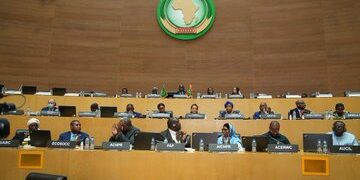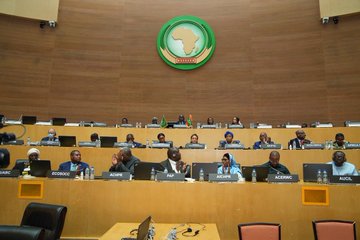Africa is on the edge of a financial revolution, moving closer to establishing its own Monetary Union—an ambitious step toward economic integration and self-sufficiency.
At the heart of this bold initiative are three key financial institutions mandated by the African Union (AU): the African Central Bank (ACB), the African Monetary Fund (AMF), and the African Investment Bank (AIB).
These institutions, outlined in the Abuja Treaty of 1991 and reinforced under Agenda 2063, are designed to accelerate regional integration and socio-economic development by mobilising resources and managing the financial sector efficiently.
The Roadmap to Africa’s Financial Integration
The AU Assembly has already adopted Protocols for the establishment of the AMF and AIB, while the draft strategy for the ACB awaits submission. Once all legal frameworks are ratified, Africa’s financial autonomy will take a monumental leap forward.
The African Monetary Fund (AMF)
The AMF is envisioned as a financial pillar that will facilitate the elimination of trade restrictions and enhance monetary integration. Serving as a reserve pool for AU Member States’ central banks, the AMF will prioritize regional macro-economic objectives through its lending policies.
Key functions of the AMF include: providing financial assistance to AU Member States, acting as a clearing house and conducting macro-economic surveillance and coordinating monetary policies and encouraging capital movements.
The AMF Protocol, adopted in 2014, will come into force once ratified by 15 Member States. Yaoundé, Cameroon, has been designated as its headquarters, with an expected operational timeline under Agenda 2063 set for 2023.
The African Investment Bank (AIB)
The AIB aims to drive economic growth and integration by fostering investment in both the public and private sectors.
Its objectives include: mobilising capital from African and global markets for investment projects, strengthening private sector activities and modernising infrastructure and providing technical assistance for investment project execution.
The AIB Protocol, adopted in 2009, requires ratification by 15 Member States to take effect. As of 2017, five countries—Benin, Burkina Faso, Congo, Libya, and Togo—had ratified it. The AIB is slated to be headquartered in Libya, with an establishment timeline of 2025.
The African Central Bank (ACB): Towards a Single African Currency
Perhaps the most transformative institution, the ACB is expected to lay the foundation for a unified African currency, ensuring monetary stability and economic resilience.
The ACB’s key objectives include: creating and managing the continental common currency, promoting exchange rate stability and establishing a multilateral payment system for trade among Member States.
Under Agenda 2063, the ACB’s establishment is projected between 2028 and 2034, with Abuja, Nigeria, proposed as its headquarters. The preparatory phase includes the establishment of the African Monetary Institute, which will set the groundwork for the ACB’s operations.
The Africa Credit Rating Agency (AfCRA)
In tandem with the Monetary Union, African leaders are convening today at the AU Headquarters in Addis Ababa to discuss the operationalization of the Africa Credit Rating Agency (AfCRA).
Facilitated by the African Peer Review Mechanism (APRM), the initiative aims to address concerns regarding the biases of international credit rating agencies and provide a fairer representation of Africa’s economic potential.
AfCRA’s mission is to provide independent and credible credit ratings tailored to African economies, reduce reliance on international rating agencies and their high costs and enhance transparency and strengthen Africa’s access to global financial markets.
With an official launch set for June 2025, AfCRA will be a critical component in Africa’s financial architecture, complementing the efforts of the AMF, AIB, and ACB.
A United Financial Future
The establishment of Africa’s own Monetary Union marks a significant turning point in the continent’s financial history.
By consolidating its monetary policies, investment frameworks, and credit rating systems, Africa is positioning itself as a formidable economic force.
As the AU continues to push forward with these initiatives, the dream of a self-reliant, integrated, and prosperous Africa moves closer to reality.









